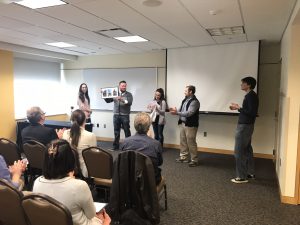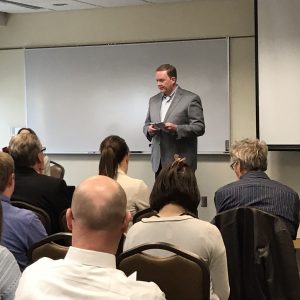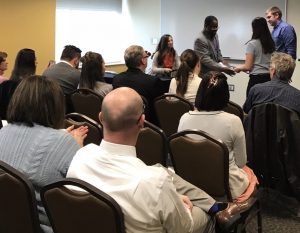The Department of History at BGSU is delighted to announce that Professor Mary L. Dudziak, a leading U.S. legal historian and the 2017 President of the Society for Historians of American Foreign Relations (SHAFR), will present this fall the 2018 Gary R. Hess Lecture in Policy History on Monday, October 22ndat 4:00pmin the Bowen-Thompson Student Union, Room 228.

Prof. Dudziak
Professor Dudziak’s lecture, tentatively entitled “The War Powers Pivot: How Congress Lost its Power in Korea,”will derive from the Korean War chapter in her forthcoming book, Going to War: An American History. Under contract with Oxford University Press, the book will present a revisionist account of the decline of political restraints on presidential war power. Her research on the topic has been influenced by Dr. Hess’s book, Presidential Decisions for War.We believe her discussion of the Korean conflict and presidential war powers will be particularly timely.
Professor Dudziak is Asa Griggs Candler Professor of Law at Emory University. Her recent and current research lies at the intersection of domestic law and U.S. international affairs, examining war and political accountability in American history. She is the author of War·Time: An Idea, Its History, Its Consequences (Oxford University Press, 2012); and editor of September 11 in History: A Watershed Moment? (Duke University Press, 2003); She founded the Legal History Blog and contributes to Balkinization, a group blog on constitutional law, theory, and politics. .
 Many of us have admired Professor Dudziak’s scholarship since the appearance of her earlier work that examined the impact of Cold War foreign affairs on civil rights policy. She is the author of Exporting American Dreams: Thurgood Marshall’s African Journey (Oxford University Press, 2008); Cold War Civil Rights: Race and the Image of American Democracy (Princeton University Press, 2000) (2nd ed. 2011); and co-editor (with Leti Volpp) of Legal Borderlands: Law and the Construction of American Borders, a special issue of American Quarterly(September 2005), reissued by Johns Hopkins University Press in March 2006. Other works on civil rights history and 20th-century constitutional history have appeared in numerous law reviews and other journals.
Many of us have admired Professor Dudziak’s scholarship since the appearance of her earlier work that examined the impact of Cold War foreign affairs on civil rights policy. She is the author of Exporting American Dreams: Thurgood Marshall’s African Journey (Oxford University Press, 2008); Cold War Civil Rights: Race and the Image of American Democracy (Princeton University Press, 2000) (2nd ed. 2011); and co-editor (with Leti Volpp) of Legal Borderlands: Law and the Construction of American Borders, a special issue of American Quarterly(September 2005), reissued by Johns Hopkins University Press in March 2006. Other works on civil rights history and 20th-century constitutional history have appeared in numerous law reviews and other journals.
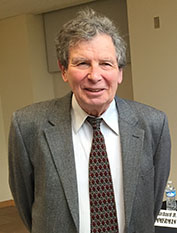
Prof. Hess
Prior to joining Emory Law in 2012, she was the Judge Edward J. and Ruey L. Guirado Professor of Law, History and Political Science at the University of Southern California Gould School of Law; she also held joint appointments in USC’s departments of history and political science. Prior to joining USC Law, she was a law clerk for Judge Sam J. Ervin, III, of the 4th U.S. Circuit Court of Appeals, and a professor of law and history at the University of Iowa. Prof. Dudziak served as the John Hope Franklin Visiting Professor of American Legal History at Duke Law School and as the William Nelson Cromwell Visiting Professor of Law at Harvard Law School. She has also been a Distinguished Visitor at the University of Maryland School of Law.
Professor Dudziak earned JD, MA, MPhil and PhD degrees from Yale University and an AB from the University of California, Berkeley.
Established by Dr. Hess’s former students to recognize his forty-five years of service to the department, BGSU, and the profession, Gary R. Hess Lecture in Policy Historyis an annual distinguished lecture invites a senior scholar in the field of foreign relations or military history to present a public lecture on a topic in their field of expertise.
Past presenters of the Gary R. Hess Lecture in Policy History:
2017 “ The Paradox of Wilsonianism: World War I and American Internationalism”
Lloyd Ambrosius, University of Nebraska
2016 “A Grain of SALT: Arms Control, the Soviet Threat, and the War on the CIA”
Richard Immerman, Temple University
2015 “Mission Accomplished or Mission Failure? The United States and Iraq since 1990”
Peter L. Hahn, Ohio State University
2014 “The Atomic Bombings Reconsidered”
Barton J. Bernstein, Stanford University
2013 “Are Indians Part of Diplomatic History?”
Walter L. Hixson, University of Akron
2011 “Analogies at War: The Use and Misuse of History in Foreign Policy Decision-Making”
George Herring, University of Kentucky


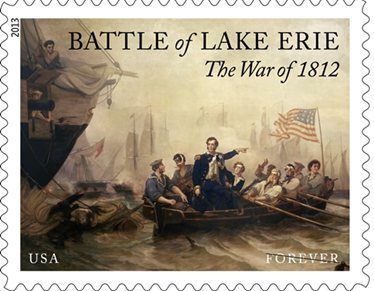 At its September 20th conference at the U.S. Naval Academy, the Naval Historical Foundation awarded Dr. David Curtis Skaggs, professor emeritus of history at Bowling Green State University, its Commodore Dudley W. Knox Award for his significant contributions to naval history.
At its September 20th conference at the U.S. Naval Academy, the Naval Historical Foundation awarded Dr. David Curtis Skaggs, professor emeritus of history at Bowling Green State University, its Commodore Dudley W. Knox Award for his significant contributions to naval history. 
 Many of us have admired Professor Dudziak’s scholarship since the appearance of her earlier work that examined the impact of Cold War foreign affairs on civil rights policy. She is the author of Exporting American Dreams: Thurgood Marshall’s African Journey (Oxford University Press, 2008); Cold War Civil Rights: Race and the Image of American Democracy (Princeton University Press, 2000) (2nd ed. 2011); and co-editor (with Leti Volpp) of Legal Borderlands: Law and the Construction of American Borders, a special issue of American Quarterly(September 2005), reissued by Johns Hopkins University Press in March 2006. Other works on civil rights history and 20th-century constitutional history have appeared in numerous law reviews and other journals.
Many of us have admired Professor Dudziak’s scholarship since the appearance of her earlier work that examined the impact of Cold War foreign affairs on civil rights policy. She is the author of Exporting American Dreams: Thurgood Marshall’s African Journey (Oxford University Press, 2008); Cold War Civil Rights: Race and the Image of American Democracy (Princeton University Press, 2000) (2nd ed. 2011); and co-editor (with Leti Volpp) of Legal Borderlands: Law and the Construction of American Borders, a special issue of American Quarterly(September 2005), reissued by Johns Hopkins University Press in March 2006. Other works on civil rights history and 20th-century constitutional history have appeared in numerous law reviews and other journals.
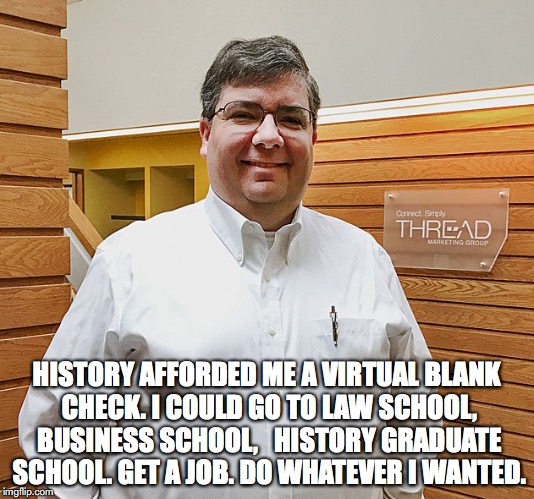
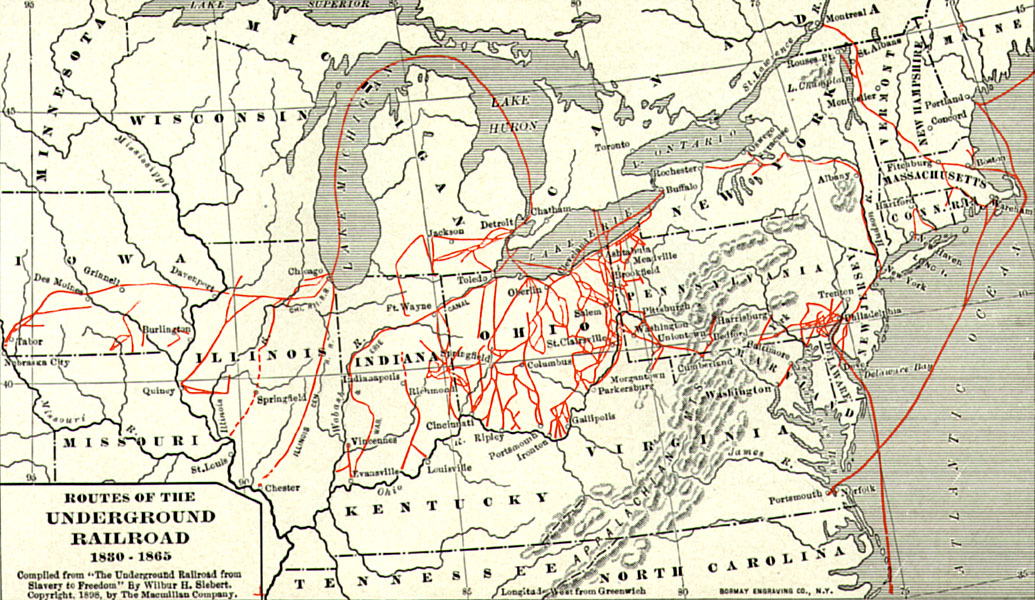 The course counts as an elective in the History major and minor, it is cross-listed with Ethnic Studies 3000, and fulfills the upper-division requirement of the Multidisciplinary Core of the College of Arts and Sciences. It will meet on Mondays, Wednesdays and Fridays 11:30-12:20.
The course counts as an elective in the History major and minor, it is cross-listed with Ethnic Studies 3000, and fulfills the upper-division requirement of the Multidisciplinary Core of the College of Arts and Sciences. It will meet on Mondays, Wednesdays and Fridays 11:30-12:20.